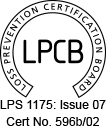Store chemicals safely in Asgard workshops
Store chemicals safely
Perhaps you know of a case first hand. A child is poisoned because she drank from a familiar container such as a soda bottle, coffee cupor glass jar; something they thought contained juice, soda or milk. Instead, it was being used improperly to hold a pesticide. Sadly the results can be fatal.
Of course these are extreme cases, but unfortunately they happen all too frequently. I've personally known of several such instances. What makes stories like this even harder is that they were easily preventable. In no case should any chemical be stored, even for a moment, in a container other than theone it originally came in. Fortunately there are a number of precautions we can take to ensure accidents like those described don't happen under our watch.
Follow all storage instructions listed on packaging and labels and keep the national Poison Control phone number handy at all times The following are some suggestions from the College of Agricultural Sciences.
- Always store pesticides in their original containers. Inaddition to the proper identification of the contents, important safely information specific to that product is listed on the container. Such information includes what to do if accidental poisoning takes place, emergency contact numbers and necessary first aid steps.
- Keep pesticides stored out of reach of children and pets. When possible, store them in a locked but ventilated cabinet. Even if you don't have children, you never know when a curious person may happen upon them. Be safe and take the path of caution.
- Pesticides should never be stored in the same location as food, medical supplies or animal feed
- Never transfer pesticides to soft drink bottles or othercontainers, including milk jugs, juice or water bottles or coffee cups. It is easy for children and even adults to confuse them for something to drink or eat.

- Use child-resistant packaging correctly. Be sure to close containers tightly and properly after use. Just because a product says 'resistant', that does not make if child-proof. These products should receive the same care and caution when storing as any other.
- Don't stockpile chemicals. Only buy what you will use that session or season. The less pesticide remaining after it is needed, the lower the risk of accidents.
- Pesticides should be stored away from places where flooding is possible or where spills or leaks could run into drains, surface water or watersheds.
- Pesticides that are flammable liquids should be stored away from the living area or where there is any risk of sparks such as with gas grills, furnaces and power lawn equipment.
- Never store pesticides in the application equipment. To avoid the problem of having excess product, only mix what is needed for that application. If excess mixture remains after application, apply where appropriate to other parts of your property.
- When in doubt as to the identity of a product or container, do not use. Be sure to dispose of it properly.
Following these suggested guidelines will go a long way towards protecting others from unwanted accidents and unintentional poisonings.





















